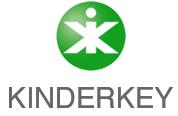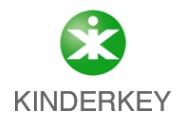 Add My Company
Add My Company
Sign In
Muscular Dystrophy
09-03-2017

A group of inherited genetic conditions fall under the term muscular dystrophy – gradually causing muscle-weakening, leading to increased disability over time. More than 70,000 people in the UK have muscular dystrophy or a related condition.
What is a Muscular dystrophy?
A progressive condition, muscular dystrophy commonly starts by affecting a specific group of muscles. Over time, it will start to become more widespread. The symptoms are very broad: certain types of muscular dystrophy can affect the heart muscles, making it a life-threatening condition, while other strains might only have negligible effects on a person’s life.
What are some of the genetic diseases within the MD group?
There are many different types of muscular dystrophy, with various symptoms – many of which don’t cause severe disability and won’t reduce life expectancy.
Some of the types include:
Duchenne muscular dystrophy: a severe form, it normally affects boys in their early childhood, reducing their lifespan to their 20s or 30s
Myotonic dystrophy: this can develop at any age and in milder cases. Life expectancy isn’t normally affected except for in severe cases
Facioscapulo humeral muscular dystrophy: developing in childhood or adulthood, it progresses slowly and is rarely life-threatening
Becker muscular dystrophy: related to Duchenne, it develops in later childhood and is less severe, with a lesser effect on life expectancy
Limb-girdle muscular dystrophy: this group of conditions normally develops in late childhood or early adulthood; variants can develop slowly or quickly
Oculopharyngeal: this variant doesn’t normally develop until the age of 50 to 60 years and doesn’t normally affect life expectancy
Emery-Dreifuss: developing in childhood or early adulthood, this condition can shorten life expectancy, although most people will live until middle-age at least
What are the causes of muscular dystrophy?
The condition is inherited and is therefore genetic. Caused by changes or mutations in the genes responsible for the functioning and structure of a person’s muscles, it changes the muscle fibres and interferes with the muscles’ ability to work properly.
What are the symptoms?
Children with Duchenne muscular dystrophy have the most pronounced symptoms that can start between the ages of one and three years – the muscles around their thighs and pelvis can appear bulky. They may have difficulty doing the following activities:
Standing up, walking, running and jumping
Learning to speak at the appropriate age
Climbing the stairs
Behavioural and learning difficulties may start to become apparent and muscles will gradually begin to weaken – they may need a wheelchair as they get older.
Other MD variants have less severe symptoms and these can be different in each person. The broad range of symptoms can include:
Muscle stiffness and cramps when exercising
A slow, irregular heartbeat
Excessive sleeping or tiredness
Weakness in the leg muscles
Difficulty in lifting objects above waist height
Loss of muscle mass
Backache
Palpitations
Although one person with muscular dystrophy may be unable to walk by the age of 16, another may still be walking at 80.
Can muscular dystrophy be treated?
Although there’s no cure, there are many treatments available. As there are so many types of MD with specific symptoms, the treatment will be tailored to an individual’s needs.
Treatments to combat the loss of mobility and strength include physiotherapy; low-impact exercise, such as swimming; physical aids to help the person stay mobile and occupational therapy. Steroid medication and creatine supplement can also help muscle strength and function.
Medication can treat any associated heart problems and surgery can be used to treat tendon contractures that cause tight joints – surgery may also help combat weak shoulder muscles. There are also plenty of support groups to help families affected by muscular dystrophy and many people can and indeed do go on to lead independent lives.
For more information on Muscular Dystrophy talk to Kinderkey Healthcare Ltd
Enquire Now
List your company on FindTheNeedle.

